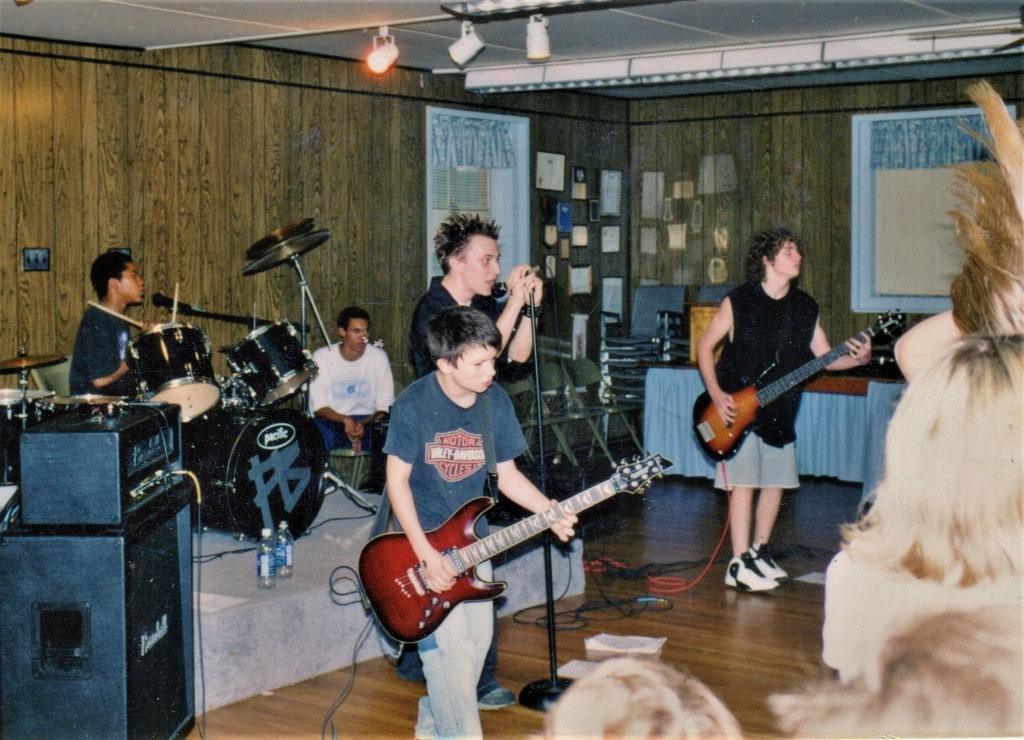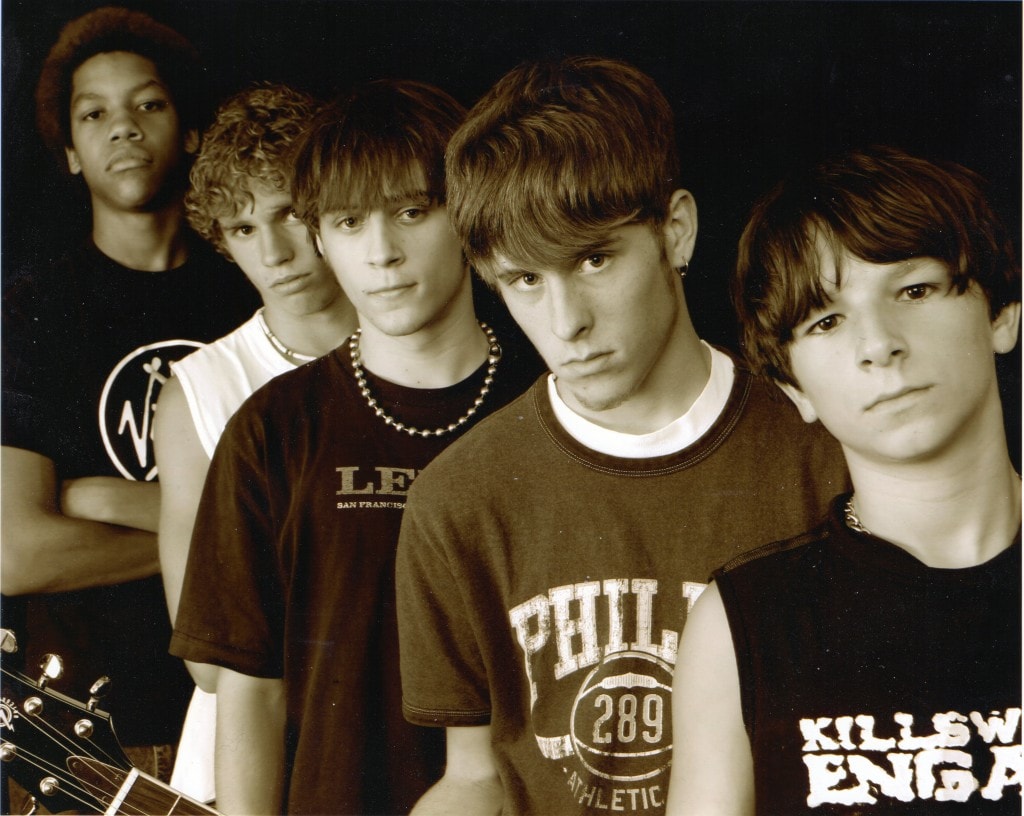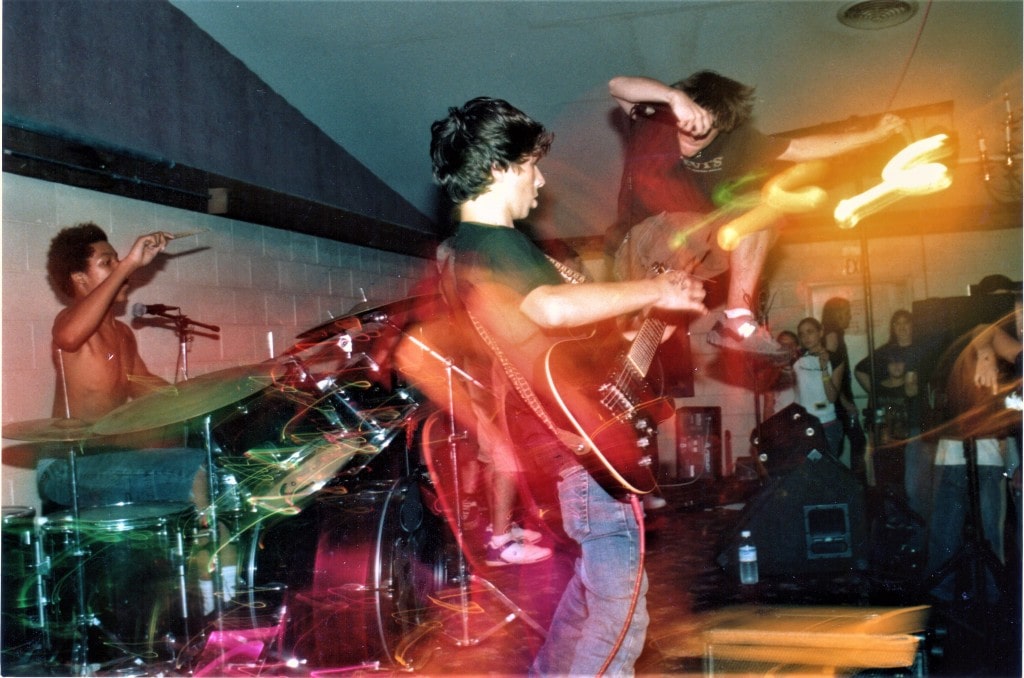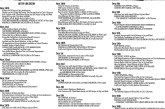From Psychotic Behavior’s local grind to Whitechapel’s world assault, guitarist Ben Savage carries his old friend wherever he goes
It’s 6 o’clock on a Wednesday evening in Berlin, Germany, when Ben Savage answers the phone backstage at Huxleys Neue Welt, a 1,600-person capacity venue that’s played host in the past to everyone from Iggy Pop to Nick Cave.
He’s picking guitar, killing time until his band, Whitechapel, takes the stage to unleash a maelstrom of metal brutality that, sonically at least, is as intense as any incendiary device dropped on the city during the Second World War. It’s a style that’s intrigued him since he first picked up a six string at Vine Magnet Middle School, back before the turn of the century. At the time, Savage told BLANK Newspaper recently, he had no idea that his burgeoning chops as a player would turn into a career, much less one that’s sent him on international tours and sold thousands of records.
Back then, he added, it was just about making a glorious racket with good friends Nija Walker, Louie Thal and the late Andrew Bledsoe, son of former Knoxville News Sentinel music scribe and current BLANK contributor Wayne Bledsoe.
“Andrew and I went to Powell Elementary School, and at the time, Vine sent some people, some recruiters over, and they were talking about the programs they had,” Savage recalled. “They had a jazz band, dance … a bunch of extracurricular stuff, which sounded cooler than what they were offering at Powell Middle. Wayne and Ruth [Bledsoe, Wayne’s late wife who died in 2000] kind of helmed it, but because Andrew and I were friends, we were a team package, so we went together.”
There, in the Vine Middle jazz band, they met Thal and Walker. Although their teacher put them through the paces of learning jazz standards, he also gave the guys free rein to make use of the room and its instruments. Walker – son of the late Eric “Samurai Celestial” Walker, who played as a member of the Sun Ra Arkestra – would get behind the drums and count off, and the foursome would churn out Nirvana covers.
It was gloriously ragged and likely rough on the ears, but for four guys who weren’t quite teenagers, it was sublime.
“I miss those days, just because you’re not thinking about the business aspect or playing the game it ends up becoming,” Savage said. “You’re just doing it for fun and hanging out with your friends. When you get older, you realize that life and music are way more complicated, and if it becomes your career, there’s money involved and a team that you work with and all of those things that you’re ignorant about in the sixth grade. I feel extremely lucky to have those humble beginnings, and we became lifelong friends.”
Eventually, the guys christened themselves Psychotic Behavior, began writing their own songs and landed their first public show at the Claxton Community Center. (Their first school performance, Savage added with a laugh, was a seventh grade talent show gig at which they were disqualified because their singer at the time cursed onstage during a Limp Bizkit cover.) Savvy in the self-promotion department from the beginning, they received a hero’s welcome to the scene from a crowd that consisted mostly of friends, but it was enough to get them noticed, and they started getting other gigs around the area.
“We just played here and there, but we’d always make a big deal out of it,” Savage said. “We would make our own flyers and put ourselves as the headlining band, even though we were probably playing first. We had no idea what we were doing.”
The one certainty, though, was that their friendship deepened. As they got older, they went to different high schools, but they continued to perform at venues like The Pilot Light and the Electric Ballroom. Around year five or six, Thal met another like-minded peer in his history of rock ‘n’ roll class, and the pair bonded over their matching ability to do standing back flips. Phil Bozeman played guitar; Thal mentioned that he played in Psychotic Behavior and invited Bozeman to practice. Bozeman became the band’s second guitarist, and Psychotic Behavior’s first show was in the garage of a neighbor of Thal’s parents.
By the time the guys reached their late teens, however, varying interests, girlfriends and diverging personalities split the band. Bozeman and Savage began hanging out with a guitarist named Brandon Cagle, who had in-home recording capabilities at his house. Together, the three shifted from the prog-punk tendencies of Psychotic Behavior into something more extreme.
“Just going to Brandon’s house and recording music felt really freeing, like we could do whatever we wanted,” Savage said. “It didn’t feel like we were fighting to get anything done, and the music we were into at the time was just super heavy, brutal stuff. It was new to us, but we thought we could forge our own path doing that.”
The guys put those demos online, and they caught the attention of a couple of Blount County musicians: guitarist Alex Wade and bassist Gabe Crisp. They all knew of each other through the Knoxville scene, but when they first came together in 2006, something primal emerged from those early sessions. Naming their new project after the impoverished district of London where serial killer Jack the Ripper brutally murdered prostitutes in 1888 seemed to fit the aesthetic, and thus Whitechapel was born.
It didn’t take long for Whitechapel to create a healthy buzz locally, playing wherever they could book shows to handle the brutality and hold enough kids to slam dance. After releasing “The Somatic Defilement” in 2007, Cagle had to step down because of injuries sustained in a motorcycle accident, and guitarist Zach Householder stepped in as his permanent replacement. The guys went on tour for the first time that year and signed a deal with Metal Blade Records, which has been Whitechapel’s label ever since.
In 2008, “This Is Exile” became the first Whitechapel album to chart on the Billboard 200; the next two albums, 2010’s “A New Era of Corruption” and a 2012 self-titled record, slowly grew the band’s fanbase and distilled the group’s furious three-guitar blitzkrieg into a potent brew of headbanging brutality. In 2014, the band’s release “Our Endless War” landed at No. 10 on the Billboard 200 albums chart, a feat practically unheard of for a death metal outfit. After releasing “Mark of the Blade” in 2016, Whitechapel returned earlier this year with “The Valley,” their most critically acclaimed, and personal, record to date, much of it written by Bozeman about his childhood.
On Dec. 21, Whitechapel will play its annual hometown headlining show, a holiday fundraiser for the Humane Society of the Tennessee Valley. All of the guys are animal lovers – on this current tour, the only thing Savage said he misses more than his dog, Butters, is his wife, Jillian – and any opportunity to play a venue like The Mill & Mine is like something out of a fever dream for a guy who was once a kid playing grimy local clubs like Ivey’s in West Knoxville and the Springbrook Rec Center in Alcoa.
“When you’re a kid, you don’t think about anything except going up there and playing and brutalizing people,” Savage said with a laugh. “Now, you’re thinking more about playing good and playing for the audience as much as for yourself. When I was young, I didn’t think about having my tone dialed in and sounding good.”
As rewarding as The Mill & Mine show will be, the next Knoxville gig for Savage may be the most meaningful he’ll play all year. On Jan. 31, 2020, at Relix Variety Theatre in the Happy Holler neighborhood, Psychotic Behavior will reunite as part of the lineup for Waynestock X, a festival named after their old bandmate’s father and established in 2011 after Andrew Bledsoe died unexpectedly.
Savage was with Andrew on Dec. 10, 2010. The two had remained close friends even after Psychotic Behavior called it quits and Whitechapel became big business; that night, Bledsoe wasn’t feeling well, Savage recalled, when he abruptly passed out. Savage immediately called 911, but it was too late. Bledsoe’s heart had given out, the result of a medical condition he never knew he had.
A year earlier, Psychotic Behavior had reconvened under a new, half-joking, moniker: Soul Seeker. The guys decided, for the hell of it, to cut a radio-friendly song with a cock-rock vibe, and the end result, Savage remembered, sounded like “Lynyrd Skynyrd meets Shinedown.”
“We would always collaborate with Andrew because he was such a great vocalist,” Savage said. “He would go over to Nija’s house, and Nija was such a great musician, he would have all these different kinds of tracks, and Andrew would go over and play and sing. I collaborated with Andrew on some of his solo piano stuff, and that song we did turned out really, really well.”
It’s one of many pieces of art that Andrew Bledsoe left behind. His spirit still looms large in the hearts of his old friends and bandmates, and it’s the reason that every time Psychotic Behavior has been asked to be a part of Waynestock, there’s never been any hesitation.
Not even this year, with Walker living in Las Vegas and Thal and Savage now calling Nashville home.
“With Nija in Las Vegas, we wondered if he would be able to make it out, but he was just like, ‘Yeah, 100 percent. Anything for Wayne,’” Savage said. “He’s going to fly in maybe a week early so we can practice. And I imagine it’ll feel like it used to when we would get together in Louie’s garage or in Wayne’s basement. Every time we’ve played Waynestock, it kind of felt like I was back there.
“It’s fun, but it’s also really special because I can imagine Andrew over there, in the corner or the shadows somewhere, just listening to the music and feeling it. Andrew always believed in what we were doing.”









